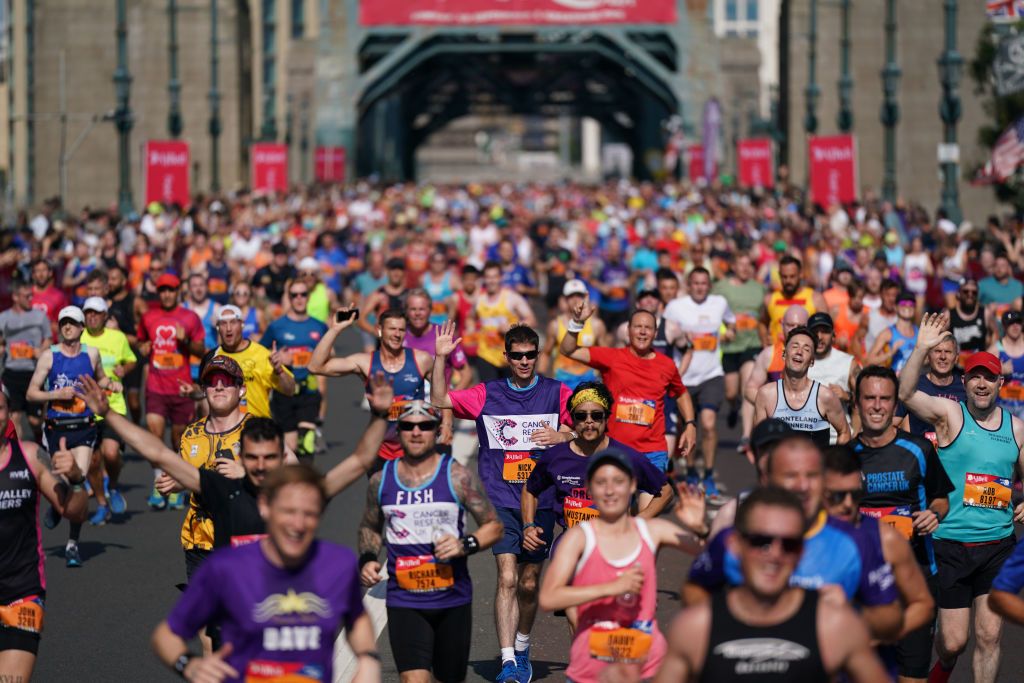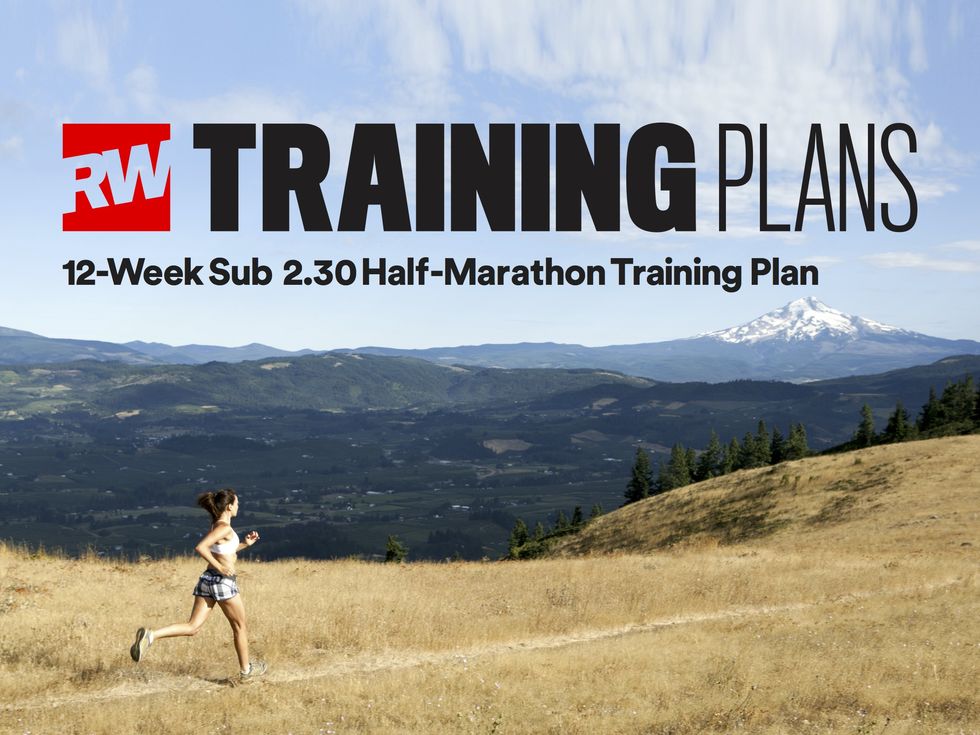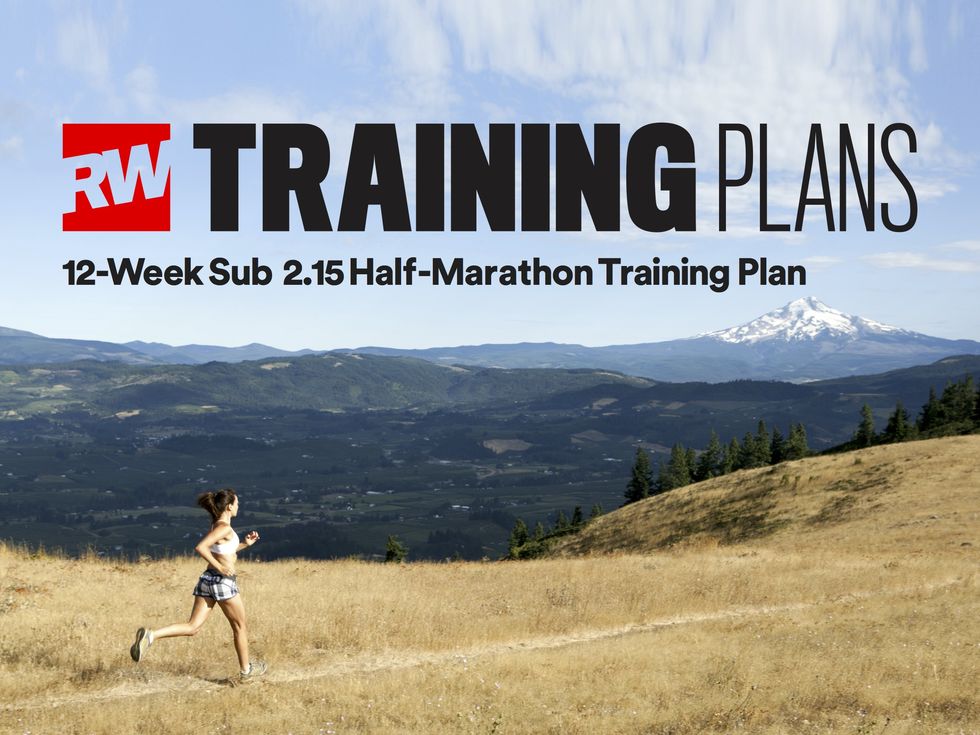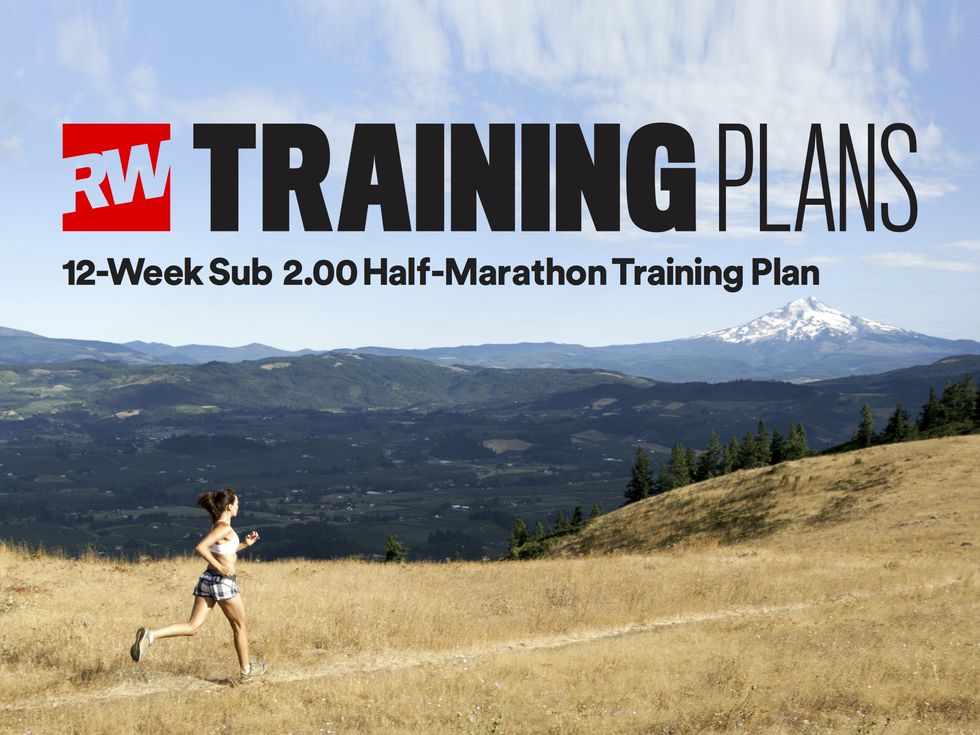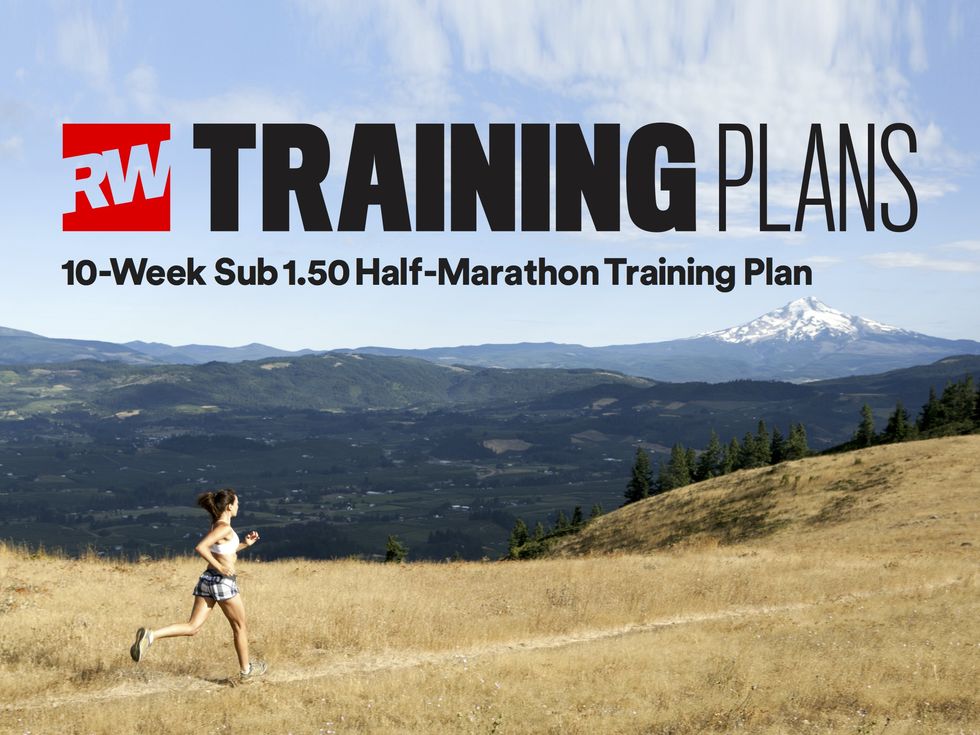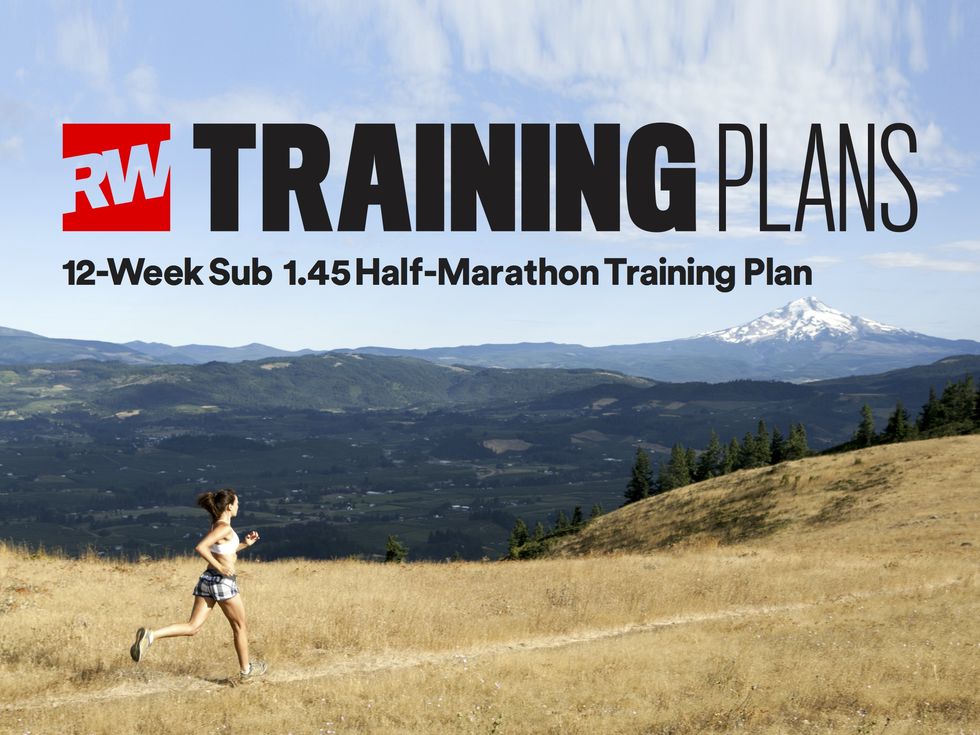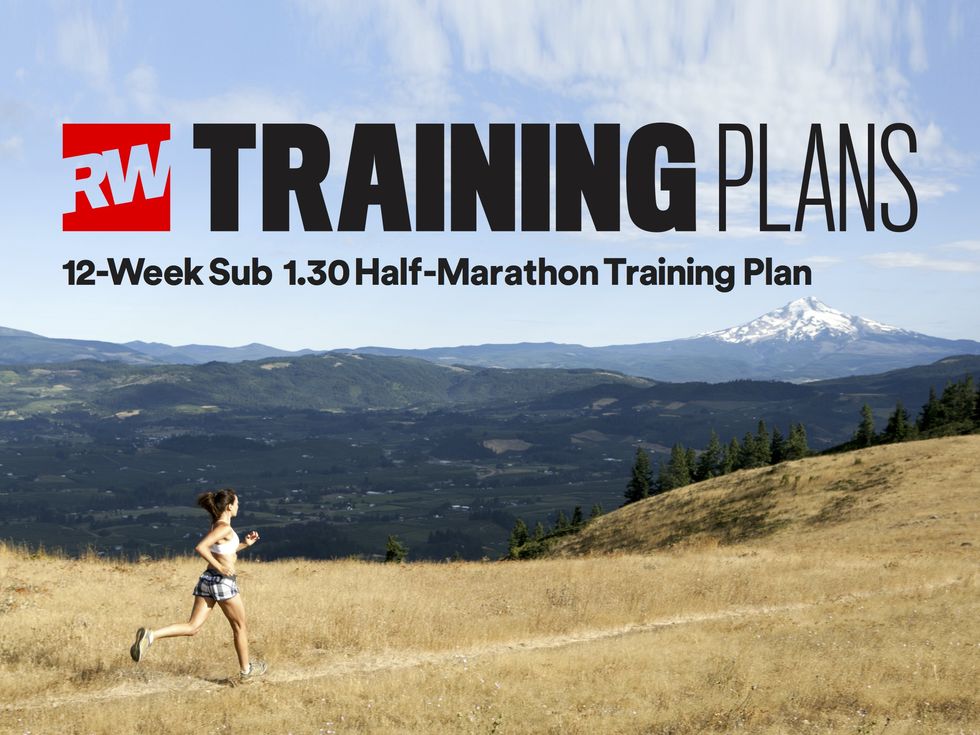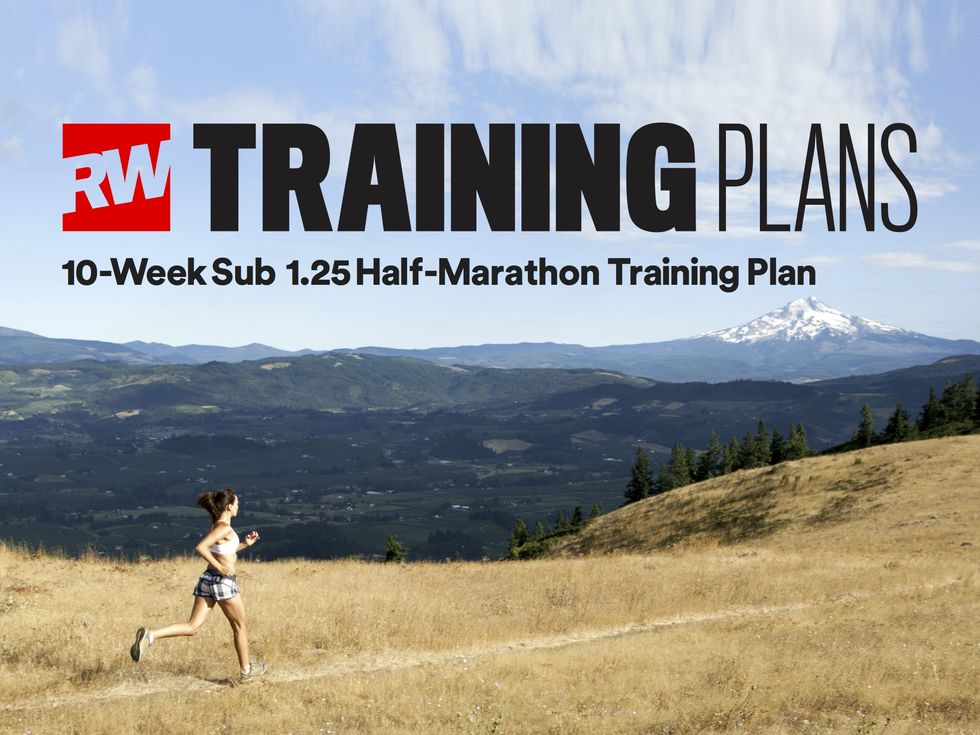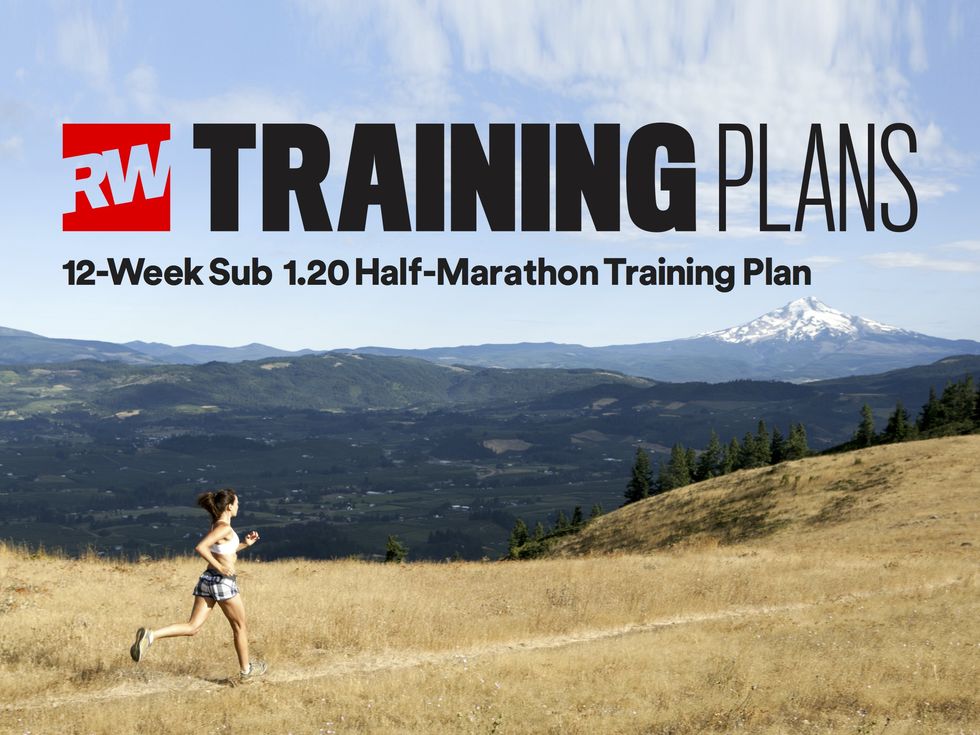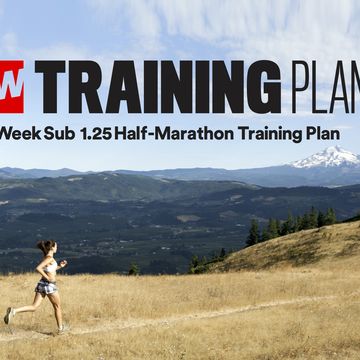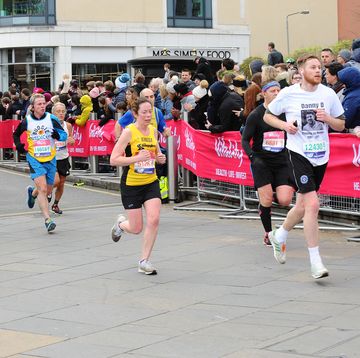Perhaps you’ve felt inspired by the London Marathon to lace up your running shoes and go the distance – but not quite the full marathon distance just yet. Or, you might be recovering from a marathon and wondering what running challenge to tackle next? Whether you’ve never run further than a 10K and want to step up your mileage, or are a marathon-plus specialist looking to cut back and get faster over a shorter distance, the half marathon is a great race to target next.
Running a half marathon is a tough but entirely attainable goal for most, with hundreds of brilliant half marathons now taking place up and down the country (and abroad) throughout the year. What’s more, you can treat a half marathon as a target race in its own right or as a key part of your preparation for a longer race like a marathon – and half marathon training sessions can still slot into busy schedules.
That said, you shouldn’t undersell a half marathon. Whether you want a PB or to simply cross the finish line, you’ll still need to dedicate time and energy to your training and hit the right balance between racking up miles and recovering from your efforts. No matter what your half marathon goal, we have the training plan and advice to help you reach it.
How far is a half marathon?
You won't be astonished to learn that a half marathon is half the distance of a full marathon – in other words, 13.1 miles or 21.1km.
Why should I follow a training plan?
If you're thinking about entering a half marathon, or have already done so, you'll want to follow a sensible training plan that suits your current ability, commitment level and race day goal. That way, you'll stay consistent, accountable and motivated from the beginning of your training block all the way up to the start line – and, hopefully, injury-free as well.
Each of the training plans below contain a variety of sessions including long runs, easy runs and speed work, as well as scheduled rest days to make sure that you recover properly. While half marathon training plans gradually increase in mileage and intensity as the weeks roll by, you must respect the need to rest and recover, especially after harder sessions. Running too many intense effort back-to-back is a fast track to injury or overtraining.
As with all training plans, you won't see instant progress – nothing is achieved in a single day or session, but rather cumulatively over time. Each session within your half marathon training plan is written with the entire training block in mind, so resist the temptation to overdo it during individual runs, even if you feel good. If, for example, you do your easy runs at too fast a pace, you won't allow your body enough time to heal from the quality training you've done prior to that.
What happens if I get injured when training for a half marathon?
It's rare for runners to get through a whole training block for a big race without picking up at least one niggle. The most important thing, though, is to not run through injuries – it's far better to take a few days off, or even a week off, than to force yourself through sessions and end up being unable to race because you've made things worse.
Depending on the nature of your injury, it's also possible to do some cross training without further damaging the affected area. For instance, you could keep your cardio fitness in check with some swimming, aqua-running, cycling or work on the elliptical. Many elite athletes use cross training even when they're not injured as a way to add volume and interest to their training, and to reduce the risk of injury in the first place.
If you can't run for one week due to injury, skip the sessions planned for that week and return to your training plan the following week. If you've missed two or three weeks of your training plan, jump back one or two weeks and continue from there, bearing in mind that you may not get to the same point as someone who has been following the plan without interruption. Don't panic, though, and don't attempt to cram in more sessions in a bid to 'catch up'.
If you've missed four weeks or more, it's wise to adjust your goal and aim for a slower time – or, if possible, to postpone your half marathon. There will always be another race!
I don't feel like I'm improving on my half marathon training plan – what should I do?
It takes time to improve as a runner and progress doesn't always follow a smooth, upward trajectory – and while you may not believe it, you are slowly building your strength and fitness as you tick off sessions on your training plan, even if you don't always execute them perfectly. Rest days and good sleep, nutrition and hydration help to consolidate those gains, too.
What strength training should I be doing?
Strength training is an essential supplement to your running – especially if you're training for a half marathon. Doing just 20 minutes of strength and conditioning work a few times a week, either at home or in the gym, can improve your running form and speed by strengthening your muscles and joints and decreasing your injury risk. If you're a bit at sea about what you should be doing, don't worry – we've got plenty of strength training workouts for runners on our website.
What shoes should I buy for the half marathon?
To run a half marathon, you'll need comfortable, supportive shoes that will get you through the training and the 13.1-mile race itself. Running in the wrong shoes for you, or shoes that are too worn down to do their job properly, can lead to injury. So, before you start your half marathon training, it's a good idea to get your gait analysed at a running shop and purchase a pair of shoes that fit the needs of your feet. Even if you've had your gait analysed in the past, it's worth having it checked again as your gait can change over time.
If you're seeking speed on race day, and are running on the road, you may want to wear a pair of carbon plate shoes for your half marathon effort.
How do I tackle race day?
If you feel butterflies in your stomach just thinking about your half marathon, you can count yourself normal – even the most experienced runners feel the nerves on and ahead of race day! Focus on your race day logistics and nutrition and hydration strategy instead, and plan a few fun post-race activities like meeting up with friends and family or going out for a celebratory meal. Here are some other tips to help you run strong on race day:
Warm up properly
Warming up prepares your body for the task at hand by increasing your heart rate, body temperature and blood flow. Blood transports oxygen to working muscles more efficiently when it is warm, and a warm body can break down and utilise glucose better than one at rest. Plus, some fast running can burn off nervous energy and help you to focus before the race.
To warm up for a half marathon, try doing some light jogging for 10-15 minutes, then do two to four 200m strides, accelerating slowly until you reach your planned half marathon pace. Since the half marathon is fairly long, you won't need to shoot off the line – insteead, ease into your goal pace over the first mile or two.
Stick to your pace
If you want to hit your goal half marathon time, the best pace strategy is to run even mile or kilometre splits throughout the race, if you can. Breaking down the race into manageable chunks is particularly useful if you're a runner who tends to lose focus in the middle miles.
'Mental lapses are common in the middle of races such as the half marathon,' says Scott Douglas, author of The Little Red Book of Running. 'If you're really racing the distance – so, a minute or more faster per mile than your normal training pace – you'll have to concentrate to keep the proper effort going. Otherwise, it's common for your mile splits to start being 10 or 15 seconds slower.'
Listen to your body
If you're feeling comfortable, persist with the same pace but don't get too excited. If you reach the halfway mark of your half marathon and feel that you can stretch yourself a bit more, gradually pick up the pace and run by feel. If, by contrast, you're not feeling great, focus on short-term goals to get you through. For example, if you're at the halfway point and struggling, slow your pace, encourage yourself to continue to the eight-mile mark and reassess how you feel from there.
Pay attention to the conditions
If it's very windy or particularly hot on the day of your half marathon, you'll likely need to slow down. Headwinds and even crosswinds can sap your energy, so in these circumstances try to let go of your pace plan and simply run by feel instead. In the heat, your body will also have to work harder to cool you down, so make sure you stay hydrated by drinking to thirst before and during the race.
Where can I find the best free half marathon training plans?
Here! Whether you're building up to your first half marathon or intending to run the distance in your quickest time yet, we've got a half marathon training plan that'll sort you out for race day – just read on for more details.
Beginner half marathon training plan
Aimed at getting you round your first half marathon comfortably, this 12-week training plan builds you up to running 20.1 miles per week.
Hilly half marathon training plan
If you're targeting a hilly half marathon, here's the training plan you need to prepare you for running all those uphills and downhills.
12-week sub-2:30 half marathon training plan
Before starting this plan, you should be capable of running either a sub-1:05 10K, a sub-1:55 10-miler or a sub-6 marathon. Training will involve three runs a week, with an average weekly mileage of 15 miles.
12-week sub-2:15 half marathon training plan
You should be capable of either a sub-60 10K, a sub-1:30 10-miler or a sub-5 marathon. Training will involve four runs a week, with an average weekly mileage of 25 miles.
12-week sub-2 half marathon training plan
You should be capable of either a sub-50 10K, a sub-90 10-miler or a sub-4:30 marathon. Training will be spread across five days a week, with an average weekly mileage of 30 miles.
10-week sub-1:50 half marathon training plan
With this plan, you'll average at 40 miles a week. That said, many runners would still be able to do themselves justice by substituting one easy run for a rest day and running closer to 35 miles a week.
12-week sub-1:45 half marathon training plan
You should be capable of either a sub-46 10K, a sub-1:18 10-miler or a sub-4 marathon. With this plan, you'll be training at least five days a week, with an average weekly mileage of 35 miles.
12-week sub-1:30 half marathon training plan
You should be capable of either a sub-40 10K, a sub-1:07 10-miler or a sub-3:15 marathon. Training will cover six days a week, with an average weekly mileage of 40 miles.
10-week sub-1:25 half marathon training plan
This training plan is for experienced runners. It will see you run more than 50 miles a week, which is about as much training as is compatible with a lifestyle that involves a job and a family.
12-week sub-1:20 half marathon training plan
You should be capable of either a sub-36 10K, a sub-60 10-miler or a sub-3 marathon. Training will be spread across six or more days a week, with an average weekly mileage of 50 miles.
